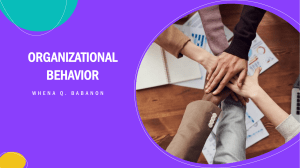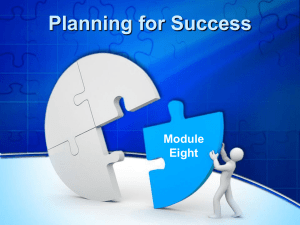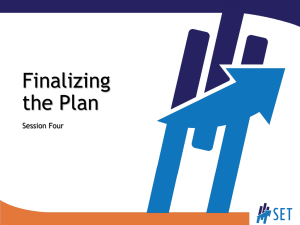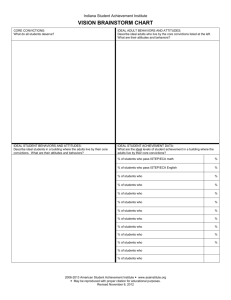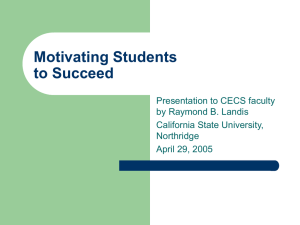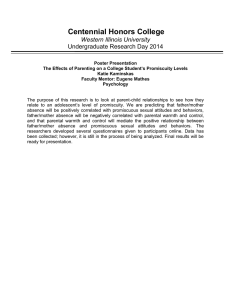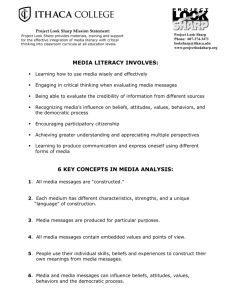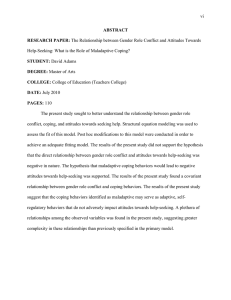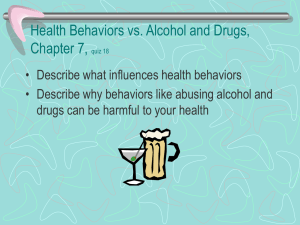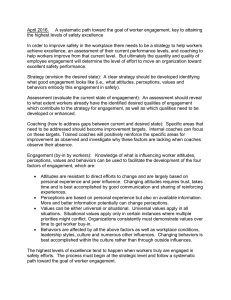How College Works - Hartnell College
advertisement
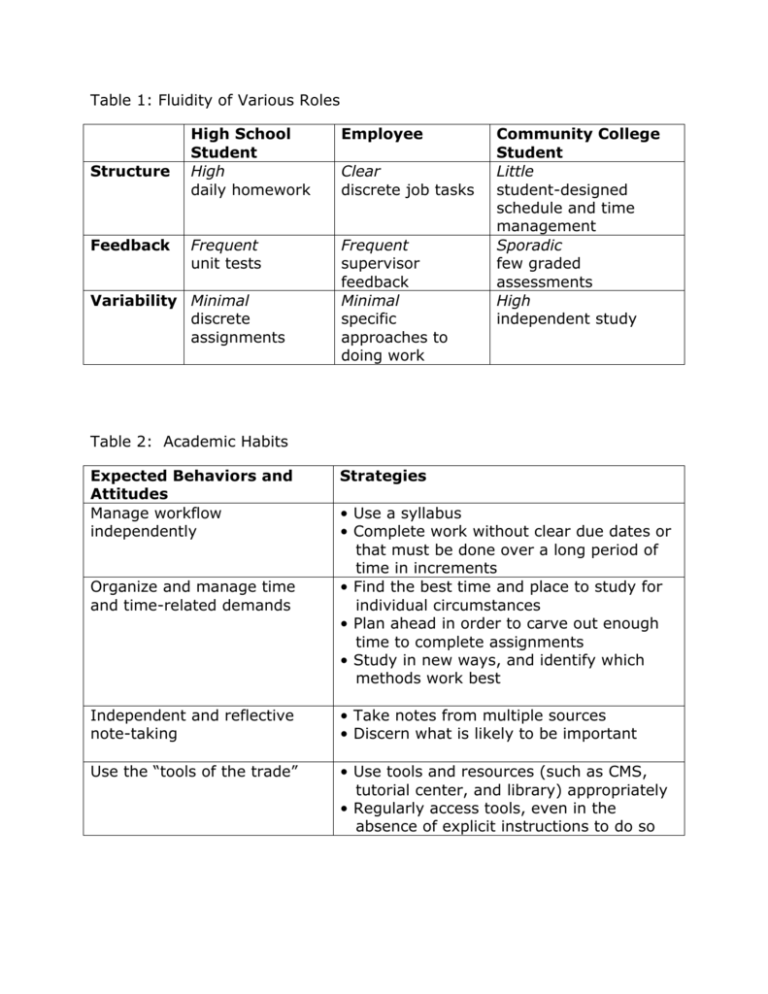
Table 1: Fluidity of Various Roles Structure Feedback High School Student High daily homework Employee Frequent unit tests Frequent supervisor feedback Minimal specific approaches to doing work Variability Minimal discrete assignments Clear discrete job tasks Community College Student Little student-designed schedule and time management Sporadic few graded assessments High independent study Table 2: Academic Habits Expected Behaviors and Attitudes Manage workflow independently Strategies Organize and manage time and time-related demands • Use a syllabus • Complete work without clear due dates or that must be done over a long period of time in increments • Find the best time and place to study for individual circumstances • Plan ahead in order to carve out enough time to complete assignments • Study in new ways, and identify which methods work best Independent and reflective note-taking • Take notes from multiple sources • Discern what is likely to be important Use the “tools of the trade” • Use tools and resources (such as CMS, tutorial center, and library) appropriately • Regularly access tools, even in the absence of explicit instructions to do so Table 3: Exhibiting Cultural Know-How Expected Behaviors and Attitudes Engage in collegiate discourse Demonstrate culturally defined forms of respect and commitment Recognize that community college is less forgiving than high school or other venues Strategies • Use academic and non-colloquial language in speaking and writing • Engage in discussion about opinions • Demonstrate openness to new ideas • Participate in give-and-take with professors • Put forth strong effort • Do not expect exceptions • Adhere to rules and deadlines • Adapt to instructors’ personal styles Table 4: Balancing Multiple Roles Expected Behaviors and Attitudes Make college a priority Use the fluidity of the part to their advantage Communicate with instructors early and often Strategies • Take responsibility for meeting deadlines • “Stick-to-it-ness” • Find a schedule that works for personal circumstances • Filter out distractions • Have a plan • Modify obligations • Earn acknowledgement of the balancing act by honest and frequent communication Table 5: Help-Seeking Expected Behaviors and Attitudes Demonstrate awareness of need Gain knowledge of available resources Develop a sense of agency Strategies • Ask for help early • Anticipate areas that might become problematic in the future • Know what resources are available • Know when to use resources, how to do so appropriately, and which ones to use • Take the initiative to seek out help • Ask for assistance rather than waiting for it to be offered • Advocate for oneself From http://ccrc.tc.columbia.edu/media/k2/attachments/defining-clarifyingrole-college-student.pdf “They Never Told Me What to Expect, so I Didn’t Know What to Do”: Defining and Clarifying the Role of a Community College Student, Working Paper No. 47, Melinda Mechur Karp and Rachel Hare Bork, July 2012, CCRC
